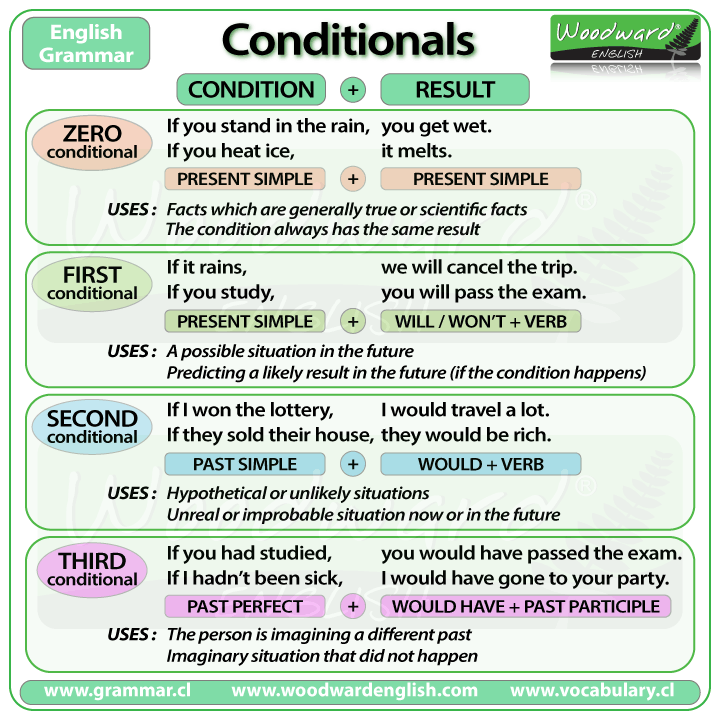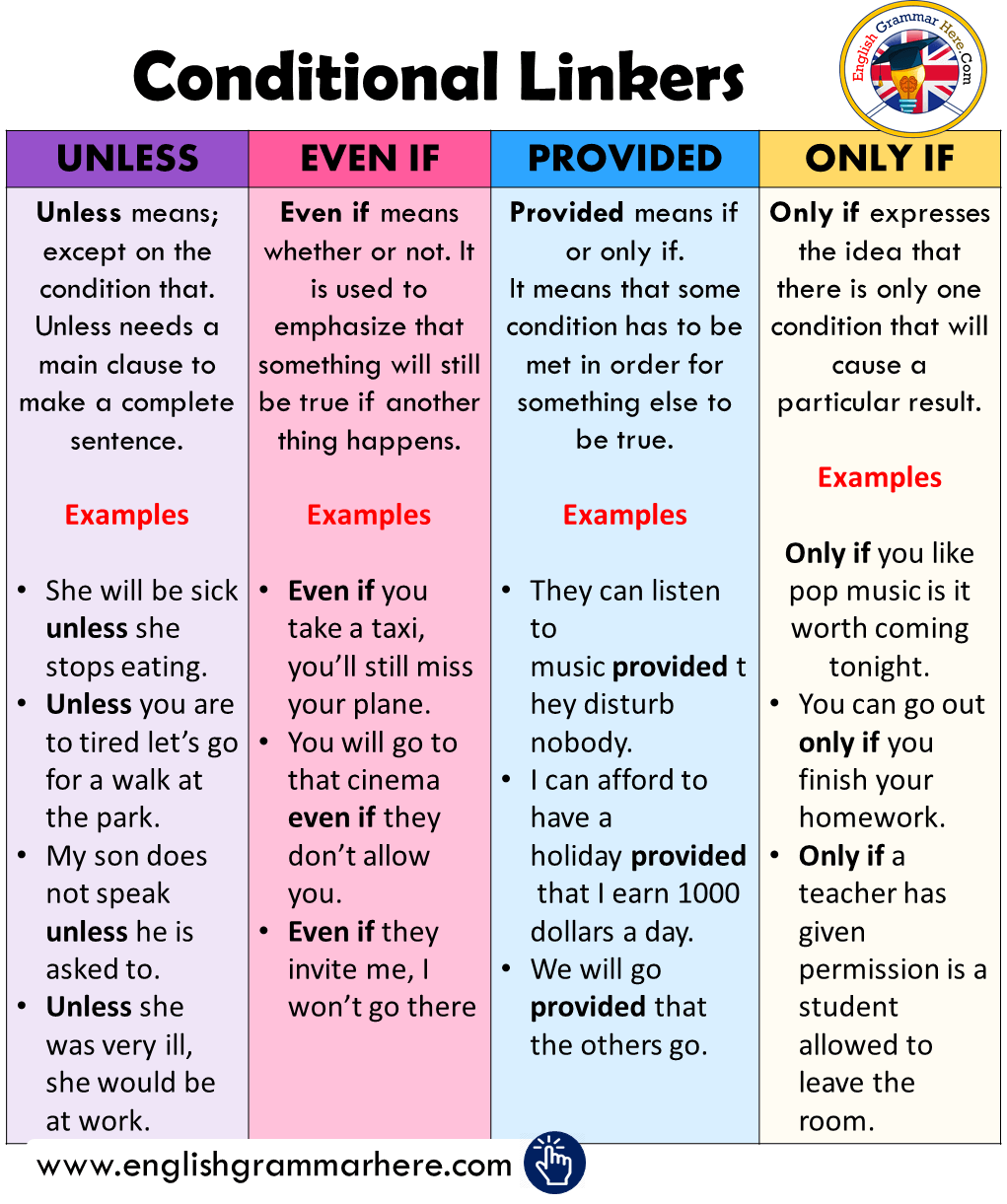CONDITIONAL DEFINITION
Conditionals are structures in English that establish what will happen if a certain event takes place or if a certain action is performed. This means that if a certain condition is true, a certain result occurs.
There are four types of commonly used conditionals in the English language that are differentiated on the basis of the degree of possibility implied by each of them. They are the first conditional, the second conditional, the third conditional and the zero conditional.
TYPES OF CONDITIONALS
First Conditional
This conditional is used to talk about future events that might happen. It uses the present tense to discuss the possible future events. For example:
If it rains, we will have to cancel the picnic.
If you come with me, I will make it worthwhile for you.
If I go abroad, I will get something back for you.
If you wait till 1 pm, you can go back with him.
If you visit Paris, you must see the Eiffel Tower.
Second Conditional
This conditional is used to talk about the unreal possibility or impossible events. They establish the course of action that would follow, where something to happen is either hypothetical or surreal. For example:
If I had a million dollars, I would buy a penthouse on Park Avenue.
I could stop working if I won the lottery.
If I were well-versed in the subject, I would help you with your assignment.
If I were you, I would ask her to marry me.
What would you do if it were to rain later?
Third Conditional
This conditional talks about the past, unlike the first and second which discusses events in the real or unreal future. These conditions, too, are therefore impossible, because they have either already occurred or might have occurred but won’t anymore. For example:
If I had studied a little more in college, life would have been easier.
If we had gotten to the airport on time, we would have caught our flight.
I could have asked him about the matter if he had shown up.
Sometimes the ‘if’ clause is merely implied, as in:
I would have done it. (…if you had asked me to)
I wouldn’t have allowed it. (…if it had been tried with me)
Zero Conditional
The zero conditional discusses an absolute certainty; the result of the condition is always true. The most common types of zero conditionals are scientific facts. For example:
If you cool water to zero degrees, it turns into ice.
Zero conditionals, therefore, do not deal with the future or the past; they simply deal with facts. The ‘if’ in these conditionals can be replaced with ‘when’: When you cool water to zero degrees, it turns into ice.

Zero Conditional
Introduction
The zero conditional is a structure used for talking about general truths — things which always happen under certain conditions. This page will explain how the zero conditional is formed, and when to use it.
1. The structure of a zero conditional sentence
A zero conditional sentence consists of two clauses, an “if” clause and a main clause (In most zero conditional sentences you can use when or if and the meaning will stay the same.):
| “if” clause | main clause |
|---|---|
| If you heat water to 100 degrees, | it boils. |
If the “if” clause comes first, a comma is usually used. If the “if” clause comes second, there is no need for a comma:
| main clause | “if” clause |
|---|---|
| Water boils | if you heat it to 100 degrees, |
We use the same verb form in each part of a zero conditional: the simple present tense:
| “if” clause | if + subject + simple present verb |
|---|---|
| main clause | subject + simple present verb |
2. Using the zero conditional
The zero conditional is used to talk about things which are always true — such as scientific facts and general truths:
| Example | Explanation |
|---|---|
If you cross an international date line, the time changes. | This always happens — every time you cross a date line. |
| If it rains, the grass gets wet. | This is basically always true — the rain makes the grass wet. |
| Wood doesn't burn if there is no air. | This is a scientific fact — wood needs air in order to burn. No air = no fire. |

| PROVIDED |


